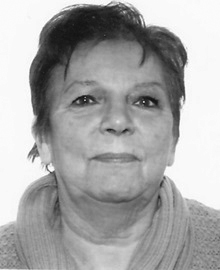Orrel Rochtus
Living with ALS is more than just accepting the disease!
Text and photographs by Orrel Rochtus and his partner Eliane
Partners have to cope with difficulties as well, no matter how much they love their partner. I want to give a clear view on people who love each other without putting their partner on a pedestal.

I just want to make clear here that “love” isn’t sufficient: patience, empathy, tolerance, and “being there for each other” are the only attitudes that make it possible to follow this difficult path.
I try to use an example from my own experience that is instantly recognisable and that we, as partners, should be aware of, without looking too much into it.
Let me first say that a partner who is in need of aid takes priority when arranging your life, this is undeniable the case when “love” has the upper hand, it’s not just something you choose to do when everything is fine, but also when you need each other. If you still have negative emotions, look for professional help, talk to friends you can trust or try writing about it like I try to do, but don’t let yourself be cornered by this overwhelming frustration. Your partner needs you no matter what. Don’t neglect yourself either, but try to show consideration for your partner’s way of thinking, even if it doesn’t fully meet your expectations, sympathise and imagine being in their place.

“Being there” usually takes the lion’s share of the whole endeavour. I myself am there for my partner day and night and I made the choice to take on all the tasks myself – not to be praised, but because I like to do it, with love and devotion. “We’re in this together”, that’s very important for us, and whenever she is the mood and feels up for it, we take sunny (wheelchair) walks and have a drink outside – a much-needed bit of time off. Errands, however, have to be done, and everyone is familiar with the queues in waiting rooms. Sometimes then, when I’m out and about by myself, things take longer than expected. This can provoke a negative reaction when you come home, when you are made aware of the fact someone is lying or sitting at home worrying about their limitations. Usually these remarks are just made out of frustration and are short-lived, but sometimes it does result in a feeling of guilt and a bit of a cry, hidden in another room.
It has only been six months since my partner has been diagnosed with ALS, but unfortunately she now has the misfortune of already being less independently mobile and has problems speaking and swallowing. We’re probably still in the stage of trying to come to terms with it (which will never fully happen). Still we are trying, like others, to cope with it in our own way. I wanted to share this with others to show it is not an isolated event, and that “guilt” is unnecessary.
Thanks and regards
Source: ALS Liga-magazine 164 – April, May, June 2014


